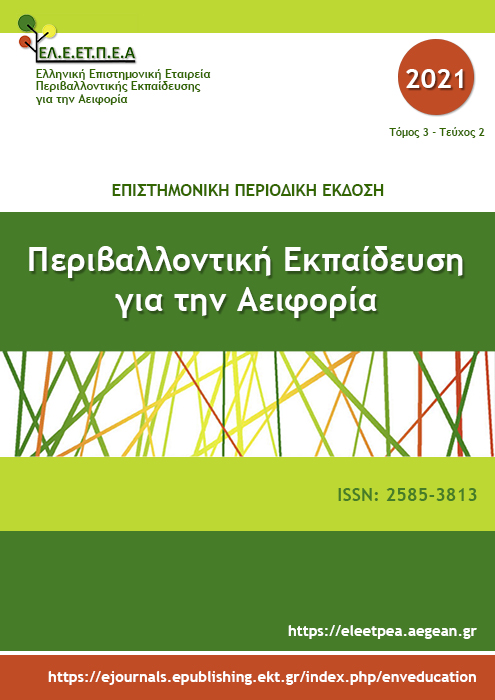Κρίσιμοι παράγοντες ανάληψης περιβαλλοντικών δράσεων στα σχολεία

Περίληψη
Η περιβαλλοντική εκπαίδευση ως αντικείμενο έρευνας της διεθνούς επιστημονικής κοινότητας δεν είναι πρόσφατη. Ωστόσο, οι περισσότερες έρευνες ασχολήθηκαν με τα αποτελέσματα της περιβαλλοντικής εκπαίδευσης ή τις διαφορετικές διδακτικές μεθοδολογίες και ελάχιστα με τη διερεύνηση της επιρροής των μορφών διοίκησης, οργάνωσης και δικτύωσης της σχολικής μονάδας και των εκπαιδευτικών στην αποτελεσματικότητα των προγραμμάτων και έργων περιβαλλοντικής εκπαίδευσης. Η παρούσα ανασκόπηση της διεθνούς βιβλιογραφίας αποτυπώνει με συστηματικό τρόπο τους κρίσιμους παράγοντες που ωθούν ή απωθούν τους εκπαιδευτικούς από το να συμμετάσχουν σε προγράμματα περιβαλλοντικών δράσεων. Η ανασκοπική έρευνα και μετα-ανάλυση αποκαλύπτει ότι οι συχνότερα απαντώμενοι παράγοντες είναι οι ακόλουθοι: κίνητρα των εκπαιδευτικών, η κοινωνική τους δικτύωση, το στυλ ηγεσίας, το σχολικό κλίμα, αλλά και η οργανωσιακή κουλτούρα των σχολείων.
Λεπτομέρειες άρθρου
- Πώς να δημιουργήσετε Αναφορές
-
Γκερμπεσιώτη Γ., Τσιρούκης Α., Κύδρος Δ., & Μπλάνας Γ. (2022). Κρίσιμοι παράγοντες ανάληψης περιβαλλοντικών δράσεων στα σχολεία. Περιβαλλοντική Εκπαίδευση για την Αειφορία, 3(2), 22–48. https://doi.org/10.12681/ees.26818
- Ενότητα
- Articles

Αυτή η εργασία είναι αδειοδοτημένη υπό το CC Αναφορά Δημιουργού – Μη Εμπορική Χρήση – Παρόμοια Διανομή 4.0.
Οι συγγραφείς διατηρούν τα πνευματικά δικαιώματα και παρέχουν στο περιοδικό το δικαίωμα της πρώτης δημοσίευσης μαζί με την αδειοδότηση της εργασίας με CC-BY-NC-SA, που επιτρέπει σε άλλους να μοιράζονται αυτή την εργασία με αναγνώριση του συγγραφικού δικαιώματος και την αρχική δημοσίευση σε αυτό το περιοδικό.

